Marion Nestle is a sociology professor and Paulette Goddard professor in the Department of Nutrition, Food Studies and Public Health at New York University. She is also an author, most recently of "Soda Politics: Taking on Big Soda (and Winning)." She blogs at foodpolitics.com.
(CNN)The just-released report
from the International Agency for Research on Cancer judging processed
meat as clearly carcinogenic and red meat as probably carcinogenic has
caused consternation among meat producers and consumers.
Meat
producers do not like the "eat less meat" message. Consumers do not
want to give up their bacon and hamburgers -- delicious and also icons
of the American way of life.
But
these judgments should come as no surprise to anyone. Eating less
processed and red meat has been accepted dietary advice since Ancel and
Margaret Keys wrote their diet book for heart disease prevention, "Eat Well and Stay Well,"
in 1959. Their advice: "restrict saturated fats, the fats in beef,
pork, lamb, sausages ..." They aimed this advice at reducing saturated
fat to prevent heart disease. Federal committees and agencies have
continued issuing such heart-disease advice to the present day.
Cancer
entered the picture in the 1970s, when scientists began to link red
meat -- beef, pork, lamb -- to the risk of cancers of the colon and
rectum. Even after several decades of research,
they had a hard time deciding whether the culprit in meat was fat,
saturated fat, protein, carcinogens induced when meat is cooked to high
temperatures or some other component.
In the mid-1990s, dietary guidelines committees advised eating lean meats and limiting intake of processed meats, still because of their high fat content. By the late 1990s, cancer experts said
that red meat "probably" increases the risk of colorectal cancers, and
"possibly" increases the risk of cancers of the pancreas, breast,
prostate and kidney. The IARC report, based on more recent evidence, makes even stronger recommendations and favors carcinogens as the causative factors.
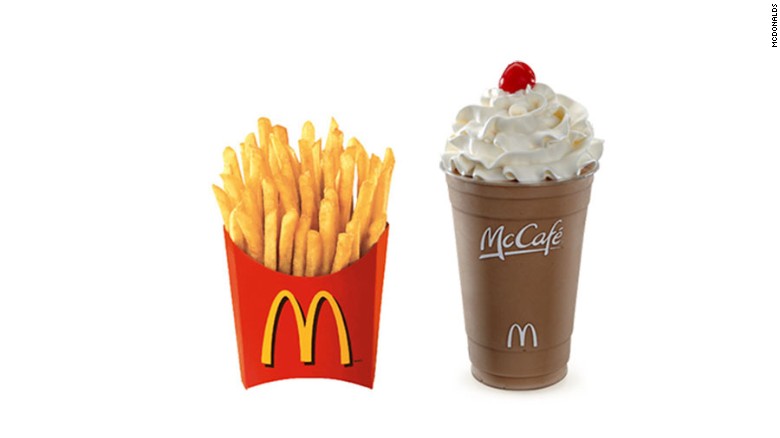
10 photos: What nutritionists choose at McDonalds
Fries And A Small Chocolate Shake – "I'd
get fresh, hot fries (not wimpy cold ones) and a small chocolate shake.
Why? If I'm famished, I need "quick energy" which I'll get from
carbohydrates, but also because ... I actually enjoy fries and shakes. I
wouldn't worry about nutrition right now because it's not in the cards.
I'd rather get a healthy meal I could savor later, and something quick
and enjoyable now."
-- Rebecca Scritchfield, MA, RD, HFS
-- Rebecca Scritchfield, MA, RD, HFS
Hide Caption
6 of 10
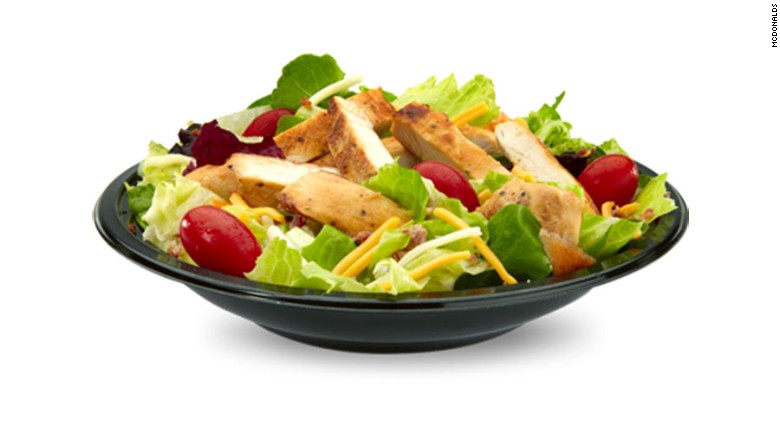
10 photos: What nutritionists choose at McDonalds
Bacon Ranch Salad With Grilled Chicken (And Half Of The Dressing) – "I'd
order the bacon ranch salad with grilled chicken and use less than half
the dressing. It provides some veggies and fiber, some lean protein to
fill me up, some calcium and flavor from the cheese and extra flavor
from the bacon (sue me, I like bacon every once in a while). I'd also
order apple slices as they provide fiber and help me meet my fruit
quota.
Once in a while I will eat French fries with ketchup. If I ordered them with a salad, I'd choose a small order. And I'd limit total fat and saturated fat the rest of the day.
I think when it comes to fast food, watching portions is most important. If you stick to smallest portions and try to get foods from at least 3 food groups (lean protein, fruits and vegetables), a fast food meal doesn't have to be a dietary disaster."
-- Elisa Zied, MS, RDN, CDN, Author of "Younger Next Week"
Once in a while I will eat French fries with ketchup. If I ordered them with a salad, I'd choose a small order. And I'd limit total fat and saturated fat the rest of the day.
I think when it comes to fast food, watching portions is most important. If you stick to smallest portions and try to get foods from at least 3 food groups (lean protein, fruits and vegetables), a fast food meal doesn't have to be a dietary disaster."
-- Elisa Zied, MS, RDN, CDN, Author of "Younger Next Week"
Hide Caption
7 of 10

10 photos: What nutritionists choose at McDonalds
Premium Southwest Salad With Grilled Chicken – "I
would have the Premium Southwest Salad with grilled Chicken. I would
order that because I would get some veggies, 7 grams of fiber for
fullness and would not go overboard on refined carbs (from the buns). I
also like that it has 29 grams of protein as I generally strive to get
25-30 grams protein in all of my three main meals every day.
It also has 320 calories, which means I can have a piece of fruit or something else as part of this lunch too."
-- Julie Upton, M.S., R.D., CSSD
It also has 320 calories, which means I can have a piece of fruit or something else as part of this lunch too."
-- Julie Upton, M.S., R.D., CSSD
Hide Caption
8 of 10
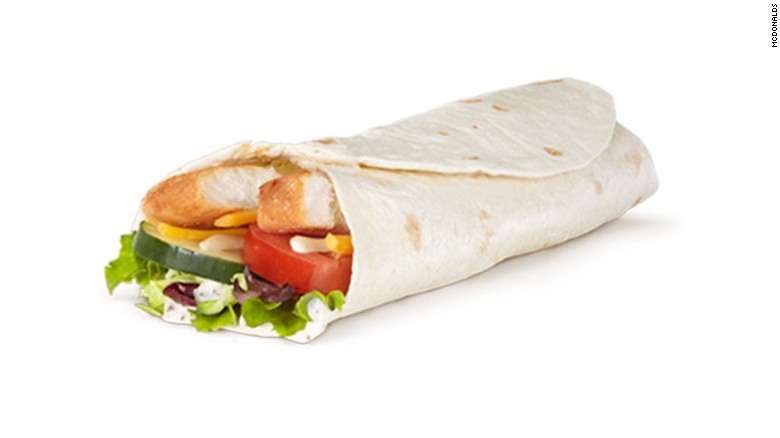
10 photos: What nutritionists choose at McDonalds
Premium McWrap Southwest (Grilled) – "A
salad just wouldn't be enough calories.So if I'm famished, I think I
would probably choose the Premium McWrap Southwest (grilled).
Five hundred calories is a reasonable amount for a meal and it's pretty balanced, with about 40% of the calories coming from carbs, 24% from protein and 33% from fat.
It's also got a serving of vegetables (including a salad blend that actually includes some nice greens, like mizuna and arugula) and 5 grams of fiber. For fast food, that's actually pretty good!
The trick would be resisting the fries!!"
-- Monica Reinagel, MS, LDN, CNS, Author of "Nutrition Diva's Secrets for a Healthy Diet"
Five hundred calories is a reasonable amount for a meal and it's pretty balanced, with about 40% of the calories coming from carbs, 24% from protein and 33% from fat.
It's also got a serving of vegetables (including a salad blend that actually includes some nice greens, like mizuna and arugula) and 5 grams of fiber. For fast food, that's actually pretty good!
The trick would be resisting the fries!!"
-- Monica Reinagel, MS, LDN, CNS, Author of "Nutrition Diva's Secrets for a Healthy Diet"
Hide Caption
9 of 10
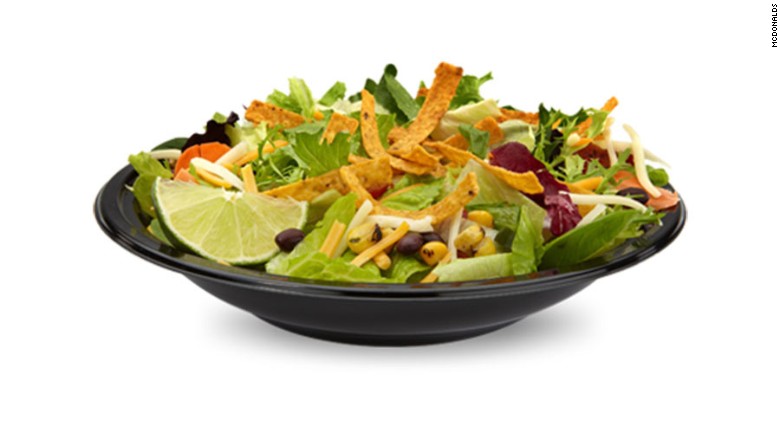
10 photos: What nutritionists choose at McDonalds
Southwest Salad Without Chicken – I'd
get the Southwest Salad without chicken. I prefer eating more
vegetarian foods and that really is difficult at McDonald's. Trying to
eat veggies at each meal is important to me --I like that the salad is
mostly veggies with some fun from tortilla strips, cheese and dressing.
It weighs in under 300 calories and has 9 grams of protein and 6 grams of fiber. Plus, the sodium isn't off the charts like many other fast food options."
-- Dawn Jackson Blatner, RDN, CSSD, LDN
It weighs in under 300 calories and has 9 grams of protein and 6 grams of fiber. Plus, the sodium isn't off the charts like many other fast food options."
-- Dawn Jackson Blatner, RDN, CSSD, LDN
Hide Caption
10 of 10
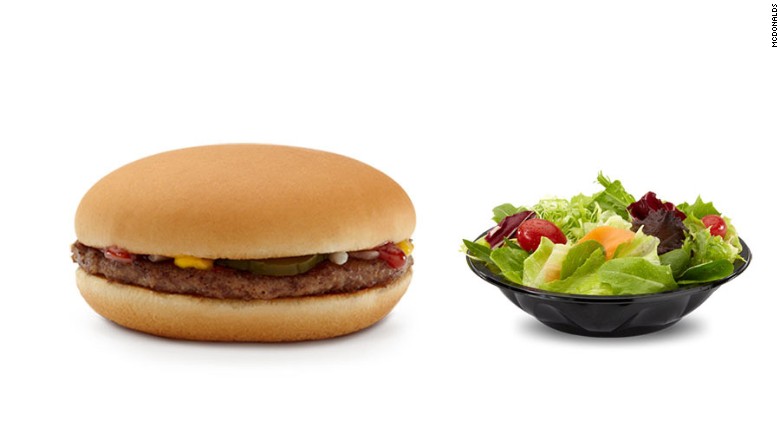
10 photos: What nutritionists choose at McDonalds
Regular Burger With A Side Salad – "If
you must have something more "traditional" at McD's, opt for a regular
burger patty and swap out the fries for a side salad with low fat
vinaigrette dressing. Otherwise, I'd choose the Premium Southwest Salad
with Grilled Chicken."
-- Katherine Brooking, M.S., R.D.
-- Katherine Brooking, M.S., R.D.

Aucun commentaire:
Enregistrer un commentaire